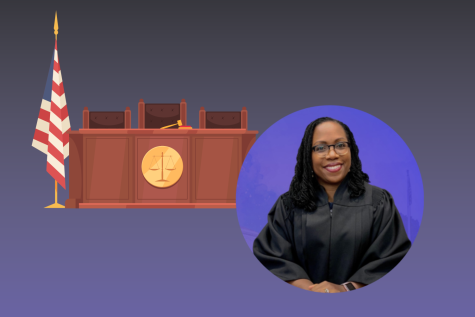COD Professor Comments On SCOTUS Nominee
Professor of criminal and constitutional law Richard Forst comments on the nomination of Judge Ketanji Brown Jackson to the Supreme Court.
March 7, 2022

Editor’s note: This article was updated to correct the spelling of Richard Forst.
Following Supreme Court Justice Stephen Breyer’s retirement announcement, President Joe Biden nominated Judge Ketanji Brown Jackson to replace his seat. Richard Forst, an adjunct justice studies faculty member at COD, said if confirmed, Jackson will create a Supreme Court that more closely reflects the U.S. population.
“Right now it can only be called a lack of diversity. There’s really no other way to describe it,” Forst said. “There’s only one Black Supreme Court Justice, Clarence Thomas. There is another person of color, Sonia Sotomayor. There are three women on the court now.”
If confirmed, Jackson would be the sixth woman, and first black woman to serve on the Supreme Court out of the 115 justices who have served since the Supreme Court was established.
“There is just not that diversity similar to the population that you would expect,” said Forst.
He said Jackson brings a valuable perspective to the Supreme Court with her two years of experience working as a public defender from 2005 to 2007.
“It will definitely give a different perspective to the court when criminal law cases, especially criminal law cases involving indigent defendants, come before the court,” Forst said.
The last Supreme Court justice with public defender experience was Justice Thurgood Marshall, who served from Oct. 1967 to Oct. 1991. Forst said this experience is an important distinction as the other Supreme Court justices come from corporate and prosecutorial backgrounds.
“There really hasn’t been that kind of representation on the court in an understanding of the point of view of a criminal defendant in a case that involves criminal law that comes before the court,” said Forst.
Jackson has said that her experience as a public defender gave her insight about how most defendants do not understand the system, the charges, or the implications of guilty and not guilty pleas. Working as a judge after being a public defender she has publicly stated she made sure that defendants understood this and appreciated the importance that defendants know their rights.
“It’s probably fair to conclude that the other members of the court don’t have– not having had that background at all– don’t have that appreciation either. They may have it indirectly,” said Forst.
On March 2, Senate Judiciary Chair Dick Durbin announced Jackson’s hearings will be from March 21 to March 24. After facing questions from the Senate Judiciary Committee and witness testimony to her background, the committee will choose to recommend or not recommend the nominee to the full Senate, which will then conduct a separate confirmation hearing and vote to confirm or not confirm her as a Supreme Court justice.
“The committee is controlled by democrats at the present time, just barely, so it’s likely that she will be confirmed by the committee, and then the question is will the full senate confirm her,” said Forst.
Biden announced Jackson as his nominee on Feb. 25, 2022. Jackson received her bachelor’s degree from Harvard University in 1992, graduating magna cum laude. In 1996, she graduated from Harvard Law School, graduating cum laude. She served as a judge on the U.S District Court for the District of Columbia from March 2013 to June 2021. From June 2021 until the time of her nomination, she served as a judge on the U.S. Court of Appeals for the District of Columbia circuit.
Richard Forst is a professor of constitutional law and criminal law. He received his bachelors in political science from Loyola University, and J.D degree from Chicago Kent College of Law. He co-authored the textbook “Constitutional Law Comes Alive: An Innovative Approach.”



















